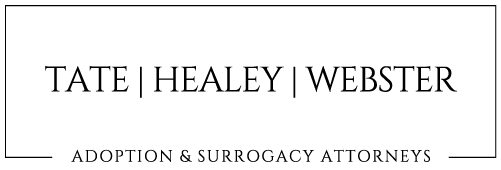Historically, international adoptions comprised a significant percentage of adoptions annually in the United States. Prospective adoptive parents in the United States have various reasons for deciding to pursue an adoption of a child from another country. Sometimes, one or both adoptive parents’ heritage originates in a foreign country and they may desire a child whose heritage matches theirs. Upon occasion, they may have relatives who still reside in their family’s country of origin and they desire to adopt a minor child in their family who is a resident of the foreign country. Other times, prospective adoptive parents have friends who have successfully adopted children from a particular foreign country which sparks their interest in adopting a child from the same country. Of course, there are many prospective adoptive parents from various foreign countries who desire to adopt United States children.
Whatever the reason, prospective adoptive parents who are interested in international adoption should consult a competent adoption attorney or other adoption service provider who has experience in international adoption. If adoptive parents have identified the foreign country from which they desire to adopt, they should research to identify an appropriate adoption agency that has an adoption program with the particular foreign country. They should also contact an adoption attorney who is versed in international adoptions. If prospective adoptive parents are interested in adopting a minor who is a relative, whether the child is in the United States or still residing in the foreign country, they should promptly contact an adoption attorney who is versed in international adoption as there are time limitations that can have an effect on the child’s ultimate ability to attain U.S. citizenship.
An additional area of significant importance in international adoption is the Hague Convention on Protection of Children and Cooperation In Respect of Intercountry Adoption, otherwise known as the Hague Adoption Convention or the Hague Convention on Intercountry Adoption. The Hague Adoption Convention is a treaty among nations whose purpose includes protection against corruption and fraud in international adoptions. The Hague Adoption Convention entered into force in the United States on April 1, 2008. There are over 50 other member countries in which The Hague Adoption Convention has entered into force. Such countries are referred to as Hague countries. The Hague Adoption Convention applies to an adoption of a child who is a habitual resident of a Hague country by prospective adoptive parents who are habitual residents of another Hague Country. The Convention prescribes detailed procedures and protocols that must be followed in processing an intercountry adoption. The adoption process is supervised by the Central Authority in each Hague country. In the United States, only accredited adoption service providers, or adoption service providers that are supervised by an accredited adoption service provider, are legally permitted to provide adoption services in a Hague Convention adoption. You can search the directory at https://directory.iaame.net/
If you have already completed the process for adoption of a foreign child, it is important to recertify the adoption, a legal process that occurs in the United States. It is likewise important for you to obtain a Certificate of Citizenship following the adoption of a foreign-born child.
If you are adopting a child from a foreign country and need to finalize the adoption or have the adoption recognized by a court in Florida, or if you have questions about adoption of a foreign child who is a relative of yours, please contact Tate Healey Webster ([email protected] or 813.258.3355). The attorneys at Tate Healey Webster have focused their practice on adoption law for a combined total of over 120 years and have helped complete thousands of adoptions. Click HERE to learn what considerations to take into account when selecting an adoption attorney.
Click HERE if you have questions about what financial resources may be available to assist you on your adoption journey.
